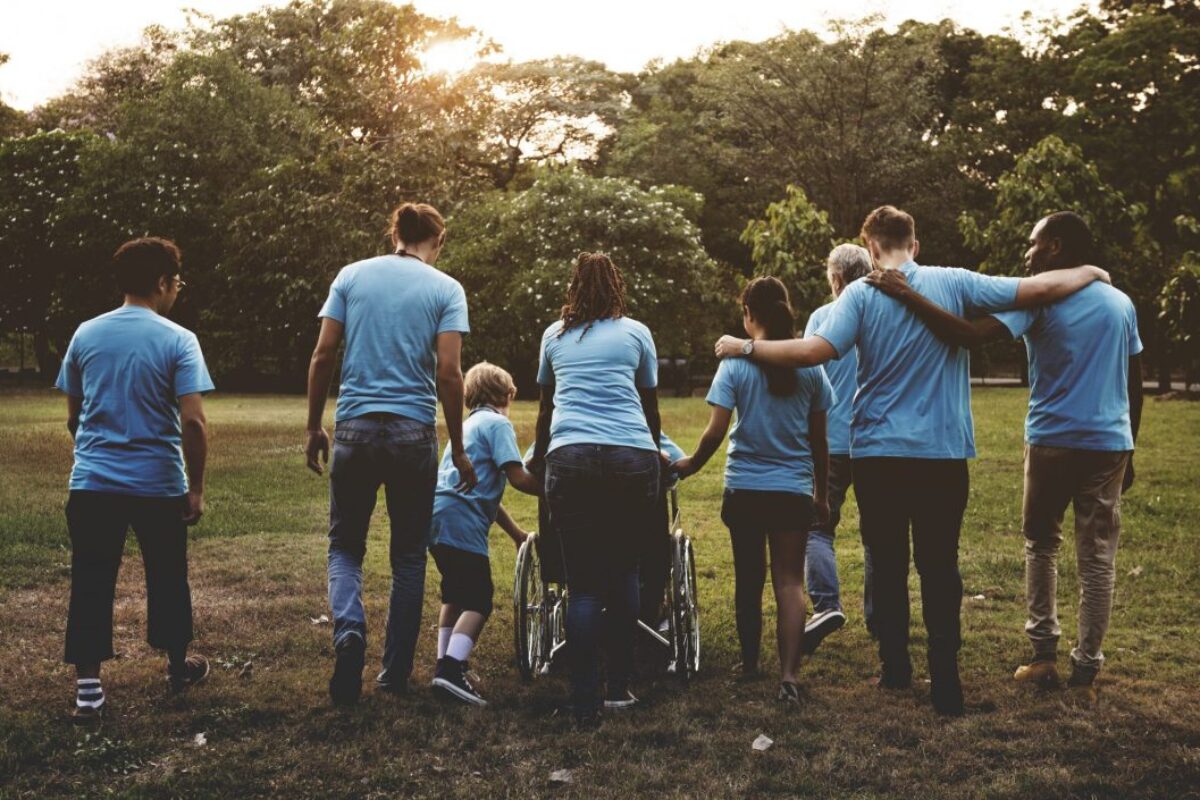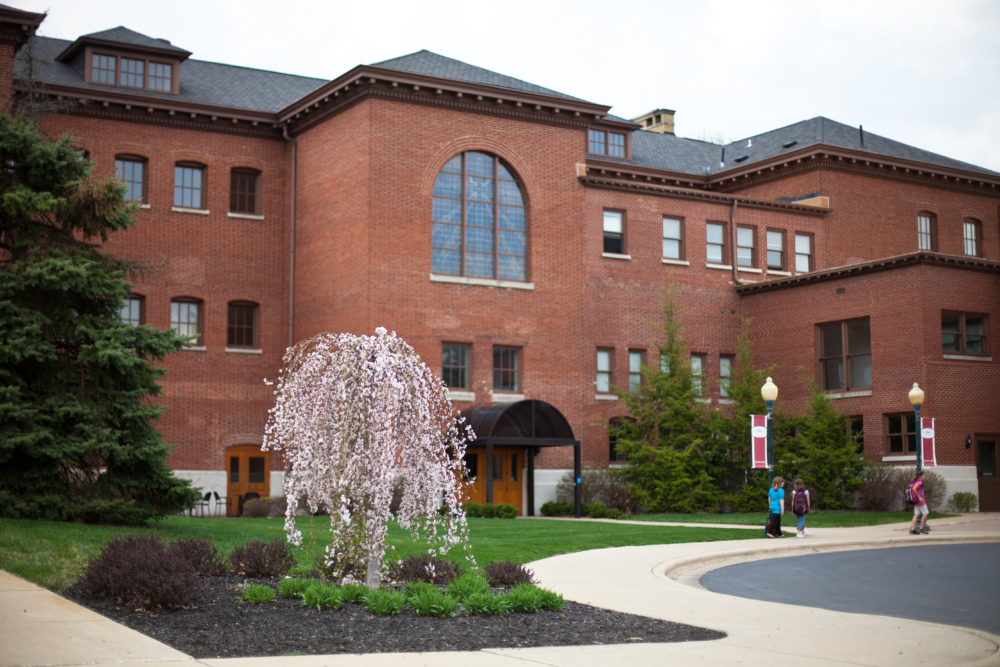June 22, 2020
Serving Your Community: A Guide to using your Human Services Degree
Tagged With Bachelors Degrees

Have you always been drawn to helping others in your community? Are you interested in Human Services Degree jobs? You may be interested in a human services degree from Grace College online.
The field of human services offers the opportunity to turn helping others into a full-time profession. Whether as a community health advocate, substance abuse counselor or other human services professional, this field gives you the ability to change your community and yourself. Human services degree jobs are not just rewarding emotionally; due to the growing need for these professionals, the job and salary opportunities are also appealing. This guide will help you understand the wide scope of human services, what role these professionals play and how you can get involved.
What is Human Services?
The National Organization for Human Services (NOHS) defines the field as “approaching the objective of meeting human needs through an interdisciplinary knowledge base, focusing on prevention as well as remediation of problems, and maintaining a commitment to improving the overall quality of life of service populations.” At its heart, human services is about helping people improve their lives.
Differences Between Human Services and Social Work
Both human services and social work are careers based on serving people, but they both reach the public in different ways. A human services professional focuses on the larger population, they are seeking to meet the needs of a group of people and not just an individual. They often work in administrative settings, organizing large efforts meant to reach several people at once. This group may be a particular ethnic group, people of a certain age or another population.
Social work focuses primarily on an individual facing a problem, for example an issue of child abuse. They facilitate the individual by providing resources to help fix this problem. Social workers often take advantage of human services programs to help their clients work through issues. Although social workers do have administrative roles, they almost never work to help an entire population at once.
Human Services Professional Competencies
The NOHS has identified six major statements of knowledge, skills and attitudes that appear to be required in all lines of work in human services. Although the functions of work will change depending on the setting, clients and organization, these competencies stay the same across most positions.
Understanding the nature of human systems
It is imperative that workers are prepared to understand how the community they are working with is organized, the policies that affect them and social systems that produce problems. This may include ethnic systems, organizational structure and other group dynamics.
Understanding functioning conditions
Human services professionals must know the major causes for issues that are preventing positive functioning in a community. For example, a person struggling with drug addiction may live in a community with abnormally high drug usage rates. This could be an obstacle to proper functioning and rehabilitation. These obstacles may also be socially, psychologically or educationally oriented.
Understanding when to intervene
A good human services worker will understand when is the optimal time to intervene with strategies or services that are most appropriate to help clients attain a desired outcome. A community that is seeing a rise in easily transmitted disease, for example, may be taught how to prevent transmission with the proper training and services.
Understanding how to plan, implement and evaluate interventions
While deciding to intervene is very important, how such interventions are performed is just as crucial. A drug abuse counselor cannot become involved in a family situation that could harm the client, and they must also be able identify what is going well in treatment and what is not. This requires problem analysis, decision analysis and design of working plans. The skill to evaluate interventions is especially important.
Understanding of values
A strong human services professional always maintains a consistent level of behavior across their interventions. All actions should be congruent with the values of the clients, the employing organization and yourself. If you violate these values, you could compromise both your job and the reputation of your employer, not to mention the well-being of your client.
Understanding service needs
A worker must use him or herself as the main tool for service needs. This involves being adept at both written and oral communication, interpersonal relationships and other personal skills. Workers must also be motivated to conduct their role well and apply themselves to the full work that is required.
Categories Within Social Services
With such a broad field, there are several areas in which people with human services degrees can work. Each of these sections offers its own challenges and communities to work with, but the goal remains the same: help others. Here’s a list provided by the NOHS:
Child welfare
Rights for the disabled
Community health promotion
Vocational and technical education
Social work services
Drug addiction counseling
Psychological rehabilitation
Careers Related to Human Services Degrees
With so many causes to champion in this field, there are plenty of careers and jobs where you can make an impact. While the individual roles have different day-to-day operations and objectives, each offers a way to create better lifestyles for others. The following list is not comprehensive, but represents just some of the possibilities for human services professionals.
Substance Abuse or Behavioral Disorder Counselor
This type of counselor advises clients who are struggling with mental health or addiction issues. Although these counselors work primarily with the individual seeking treatment, they may also engage with family members and loved ones. Counselors might develop and implement plans to help clients succeed in their recovery, including helping them build a support network, find gainful employment and seek to understand the triggers that may cause a relapse.
The U.S. Bureau of Labor Statistics lists an annual median salary for this career of $39,270. It will also grow 22 percent by 2022, much faster than the national average.
Community Health Worker
Many communities face health issues that stem from widespread unhealthy behavior, such as a high incidence of heart disease in communities with poor nutrition, or outbreaks of disease in communities with low vaccination rates. Community health workers perform community outreach to implement programs that will improve the wellbeing of community members. This may be based on helping those in a particular demographic or a community as a whole. The implementation of these programs can include anything from free health screenings to lectures at community events.
The BLS lists an annual median salary for this career of $34,870. It will also grow 22 percent by 2022, much faster than the national average.
Recreational Worker
Most communities have extensive recreational programs that include activities for both youth and adults. These programs are managed by recreation workers who help organize and execute them. This may include leading summer camps, aquatic centers or even events for seniors. These individuals help provide fun and enriching activities for everyone, and have a positive impact on the community.
The BLS lists an annual median salary for this career of $32,240. It will also grow 1 percent by 2022, as fast as the national average.
Indiana Human Services Organizations
As with any government, Indiana has a strong commitment to providing human services for their communities. The Family and Social Services Administration manages many of these services at a state level, but there is a patchwork of other organizations who work alongside them to help serve the communities of the state. Each of these groups employs human services professionals to work in various capacities.
The Family and Social Services Administration
The state’s primary provider of human services is mostly known for managing the state’s Medicare and Medicaid coverage. However, the FSSA also manages Indiana’s rehabilitation services, addiction services, early childhood services and several other health services-related fields. They aim to help Hoosiers achieve healthy, self-sufficient and productive lives.
Human Services Inc.
Started in 1965, HSI provides grass roots programs to lower income populations across Indiana. They provide assistance for legal needs, housing, family planning and community building. They also build partnerships and collaboration between groups to spur growth. They are one of the largest nongovernmental human services groups in the state and serve tens of thousands of people in need.
Indiana Coalition for Human Services
The Indiana Coalition for Human Services is a partnership of countless groups interested in promoting the wellbeing of all Hoosiers. From the AARP to the United Way, this group has a variety of causes they are supporting in order to assist citizens. Most of this group’s work is related to promoting legislation, but it’s a great place to start for people wanting to start a career in the field.
As you’ve seen, there are plenty of opportunities to change the lives of those around you by working in human services. Whether you’re a recent high school graduate or a busy mom looking for a career in service, earning a degree in human services is the first step to becoming a part of this rewarding field. The online Bachelor of Science in Human Services degree at Grace College, for example, prepares graduates for entry-level roles. With classes that apply biblical principles to approaching social problems, legal issues and conflict resolution, earning a degree gives students the fundamental skills they need to start making a difference in their community.


